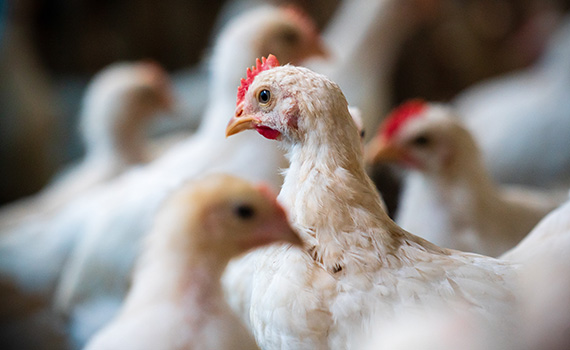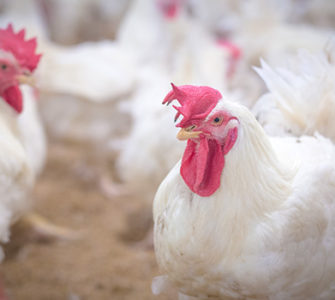IBDV linked to severe necrotic enteritis in broiler chickens
Broiler chickens exposed to infectious bursal disease virus (IBDV) are likely to develop more severe cases of the bacterial disease, necrotic enteritis (NE), researchers in Canada have found.
The development of NE, a serious economic concern for poultry producers, is associated with a number of factors, including diet, poor coccidiosis control, and exposure to immunosuppressive pathogens.
Co-infections see increased disease signs
In a study by scientists at the University of Saskatchewan, birds infected with IBDV alongside a challenge with Clostridium perfringens, the causative bacterium of NE, developed lesions associated with the disease early, and with greater prevalence, explained Hemlata Gautam, PhD candidate.
“The birds given C. perfringens in feed only without IBDV showed around 50% to 60% lesions, while the birds given IBDV along with the C. perfringens challenge showed a higher percent of lesions — around 80%,” she said.
Gautam also pointed to her previous work, which demonstrated the virus’s immunosuppressive nature in both early and late infection models.
Early steps toward vaccine
The study’s findings were consistent with field cases of NE in broiler chickens, providing a basis to search for successful treatments of the disease.
“We are using this animal model in our further studies to explore the pathogenesis of Clostridium perfringens in commercial broiler chickens and ongoing work of developing a vaccine against NE,” Gautam told delegates at the 2021 Western Poultry Disease Conference.
Economic losses due to NE are set to increase following the withdrawal of in-feed antibiotics in many nations, she added.
“It will be a real challenge to test alternative preventative strategies to control necrotic enteritis in immunosuppressed birds under field conditions, amid antibiotic withdrawals,” Gautam said.
Posted on October 10, 2021

















